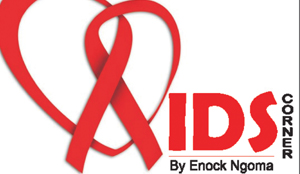 A couple of years back I wrote in this column how one person, living with HIV and on antiretroviral treatment (ART), had started “a fight” to serve his life because he was experiencing treatment failure on the second line of ART treatment. At that time, his CD4 count had dropped to 5 (five), the viral load was in millions and was in bad shape in terms of health.
A couple of years back I wrote in this column how one person, living with HIV and on antiretroviral treatment (ART), had started “a fight” to serve his life because he was experiencing treatment failure on the second line of ART treatment. At that time, his CD4 count had dropped to 5 (five), the viral load was in millions and was in bad shape in terms of health.
For the sake of his family and like I did in the article I wrote in 2012, I will not reveal his true identity so I will not use his true name. Maybe I should call him Michael.
Michael, 44, is an HIV advocate and activist who works with various organisations dealing with HIV/AIDS in Zambia and is based in Lusaka.
He has been on ART for over 15 years now. He realised his predicament of treatment failure in 2012 and efforts to acquire third line treatment failed at that time because government authorities told him that in the 2011/2012 national budget, there was no allocation for third line ARVs.
That was what prompted Michael to start an advocacy campaign for third line treatment to be introduced in Zambia. He used the media to talk about this issue and to-date, he remains thankful to this column and the Zambia National Broadcasting Corporation (ZNBC) TV in Kitwe and in Lusaka for their assistance in this regard.
“At that time, I still continued to take second line treatment that was failing in the hope that the virus that was regenerating would be stopped.
“My supervisor, a Doctor at one of the organisations where I work, asked that I do a TB test which I did at Kalingalinga clinic and the results for sputum and chest x-ray were both negative. But the Doctor insisted that I be put on TB treatment which I did.”
He says he started responding to the TB treatment with the CD4 count rising from 5 to 15. He says after a number of media campaigns which he did in collaboration with Treatment Advocacy Literacy Campaign (TALC), government assured that it would look into the matter.
“The government listened and told us that they would procure third line drugs for only a 100 people. They eventually did this and we were getting the drug direct from the Ministry of Health at Ndeke House. But now we get the drugs from the University Teaching Hospital (UTH).”
“My CD4 count rose from 15 to 400 after taking the drug for two years and the viral load became undetectable. This showed that the treatment was effective and I am still advocating that those failing on second line should be put on third line because it is working well. I am a reflection and living testimony of third line treatment,” Michael says.
He says there are many people out there that had become resistant to second line treatment who need to be placed on third line treatment. He says the drugs are available at UTH where a number of selected staff where especially trained to administer third line treatment and since attending the clinic is by appointment only, the doctor/patient relationship is enhanced. He says at least for those on third line treatment, no one goes back home without the drugs.
Michael, however appeals to government and other stakeholders to decentralise the systems so that more staff are trained and work at all provincial centres to reduce on costs of people travelling to Lusaka’s UTH for the drugs. He adds that it’s not only in Lusaka where people are experiencing second line treatment failure but the whole country, hence the importance of decentralising at least to provincial level.
“I am responding well and I am working to assist the youth in the issues of HIV/AIDS. My CD4 count is currently at 700 and the viral load remains undetectable. I am living a healthy life, happily with wife and three children and doing what any other person can do. What is also assisting me is exercising. Initially when I started my third line treatment, my feet were swelling but with a lot of exercises, all the swelling has gone,” he says.
He also appealed to families to always test for TB especially in a home where there is a case of TB, it is important that all family members go for testing. Many people do not know their status on TB and advises against standing close to each other in crowded places even at clinics. “TB treatment is important I am sure that the government will continue with the free constant supply of treatment.”
For comments or if you would like to meet Michael or if you have your own story to tell, don’t hesitate to contact me on knoxngoma@gmail.com or text/call +260955883143.






